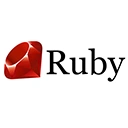Introduction
Jekyll is a popular static site generator that allows you to build a personal blog quickly and easily. It's powered by Ruby and is well-suited for bloggers and developers who want a simple and customizable platform for sharing their thoughts. In this guide, we'll explore how to create a personal blog using Ruby and Jekyll.
Prerequisites
Before creating your personal blog with Jekyll, make sure you have the following prerequisites:
- Ruby installed on your system
- RubyGems (Ruby package manager)
- Basic knowledge of Markdown for content creation
Step 1: Install Jekyll
Start by installing Jekyll using RubyGems:
gem install jekyll bundler
Step 2: Create a New Jekyll Site
Create a new Jekyll site with the following command:
jekyll new my-blog
Step 3: Customize Your Blog
Explore your new Jekyll site, customize it, and add your content. Here are some key directories and files:
_config.yml: Configuration file for your blog._posts: Directory for your blog posts written in Markdown._layouts: Layout templates for your blog pages._includes: Reusable code snippets.
Step 4: Serve Your Blog Locally
To preview your blog locally, navigate to your blog's directory and run the following command:
cd my-blog
bundle exec jekyll serve
Your blog will be accessible at http://localhost:4000. You can make changes and see them in real-time as you save your files.
Step 5: Publish Your Blog
When you're ready to publish your blog, you can host it on a platform of your choice. GitHub Pages is a popular option for hosting Jekyll sites for free. Simply push your Jekyll site to a GitHub repository, and it will be available at https://yourusername.github.io.
Conclusion
Creating a personal blog with Ruby and Jekyll is a straightforward process that allows you to focus on content creation without the complexity of a full-fledged content management system. With Jekyll's simplicity and flexibility, you can have your blog up and running in no time.
As you continue to use Jekyll, explore themes, plugins, and additional customizations to enhance the look and functionality of your blog. Enjoy sharing your ideas and experiences with the world!
Happy blogging!

